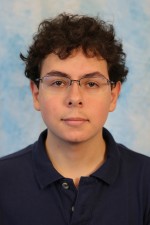
PhD Speaking Qualifier
May

Carnegie Mellon University
1:00 pm to 2:00 pm
NSH 3305
Abstract:
The mapping and characterization of planetary bodies relies on the analysis of data collected by spacecraft and orbiters. For example, the instruments carried by the Mars Reconnaissance Orbiter have been crucial in the mapping of landforms, stratigraphy, minerals, and ice of Mars. These instruments provide extensive contextual information, but factors such as sparsity, resolution, and noise leave uncertainty in the orbital analysis. Hence the need to send robotic explorers – such as Curiosity and ExoMars – to refine these models through the collection of definitive, in situ measurements. Given the many operational challenges and constraints that are faced during space exploration, finding underlying patterns between orbital and in situ data can reveal sampling locations that optimize information value, leading to increased efficiency during exploration.
This talk first proposes two generative models relating remote and in situ data: one based on a variational autoencoder, and another based on Gaussian mixture models. It then describes tools from information theory for optimal experimental design and measurement planning. These methods are applied to spectroscopic observations of the Cuprite Hills in Nevada. The results indicate that the proposed methods are capable of inferring high resolution features from low resolution data, and that they also identify effective in situ sampling locations.
Committee:
David Wettergreen
Nathan Michael
Ioannis Gkioulekas
Daniel Maturana